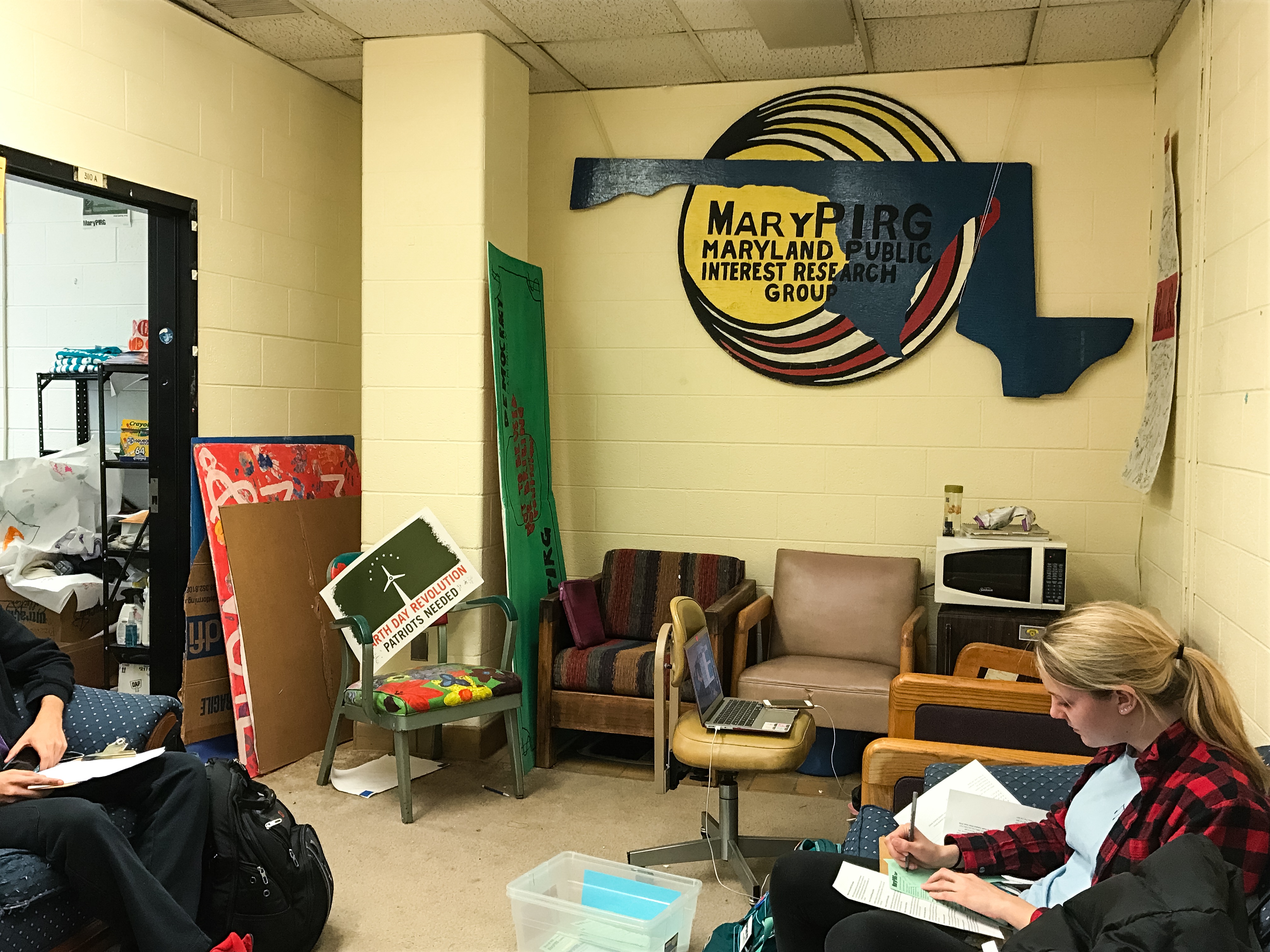Following a ban of styrofoam in Prince George’s County in 2016, University of Maryland MaryPIRG members are launching a campus campaign to expand the ban of the material statewide.
The campaign, called Save the Bay, officially launched this semester at MaryPIRG’s kickoff meeting in Stamp Student Union on Monday night.
Ary Papadopoulos, this university’s chapter president, said the organization wanted to “do work to make sure that the [Chesapeake] Bay was taken care of,” citing concerns that President Trump’s administration wouldn’t fund future environmental programs that help reduce pollution in the area.
The countywide ban was enacted to limit the amount of styrofoam entering landfills and local waterways.
When plastics, such as styrofoam, enter the waterways, they break down into smaller pieces and soak up toxins in the environment. When wildlife mistake the small pieces for food these toxins can enter the food chain.
Along with Prince George’s County, Washington, D.C., and Montgomery County have also banned the use of styrofoam for food containers and packaging.
MaryPIRG members plan to work this semester to gather signatures from students that they can show to state legislators when the 2018 Maryland General Assembly begins in January.
“We can drop these petitions off to our senators and show them right off the bat, these are how many students really care about the bay,” said Papadopoulos, a senior public health sciences major.
The group also plans to partner with College Park businesses who have a history of being environmentally friendly to expand the ban and enforce the current one in place in the county.
“We think it’s great to engage the local college park community, especially since Route 1 is where we gather,” Papadopoulos said. “It’s where we eat, it’s where we hang out, so it’s really important that we’re doing everything we can to make sure that we’re not adding more stress to the environment.”
Papadopoulos noted that it was one of the group’s most popular campaigns during its kickoff.
About 60 students signed onto the campaign at the kickoff and others who weren’t able to attend have contacted MaryPIRG about joining the initiative, said Luisa Beltran, the campaign coordinator.
“It really shows that UMD students really do care about the environment,” Beltran said.
Beltran, a sophomore government and politics major, said in addition to grassroots tactics, such as tabling and phone banking, she also plans to host events where speakers can talk to the campus community about styrofoam’s potential negative effects on the environment and human health.
Studies have shown one of the ingredients used to make styrofoam, styrene, has caused tumors in mice, and a 2016 U.S. Department of Health and Human Services report said that it is “reasonably anticipated to be a human carcinogen.”
Lillian Wessel, a sophomore enrolled in letters and sciences, is working on the campaign and said she’s focusing on eliminating plastic straws at and around this university.
Americans use about 500 million straws per day, according to an estimate by Eco-Cycle, a nonprofit recycling company.
As part of the campaign, some students involved will introduce Route 1 businesses to paper straw alternatives, which are biodegradable, or ask them to forego straws entirely, Wessel said.
“It’s definitely going to be difficult because people are used to [using straws],” Wessel said. “A lot of people don’t like change. … We’re definitely up for the challenge.”
Beltran said she also plans for the group to work closely with Prince George’s County Sierra Club, which is taking surveys of small businesses in the area. The club plans to use this data to target places that need more reinforcement of the styrofoam ban and to help convince legislators to pass a bill that would expand it, she added.
“The environment really does affect everyone,” Beltran said. “You can be rich, you can be poor, you can be a Republican or a Democrat. If you don’t have clean water, neither does the person next to you.”



